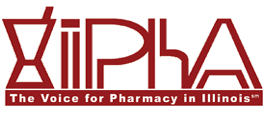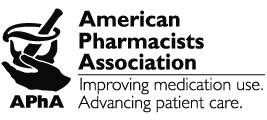Should I Voluntarily Surrender My DEA Registration?
 For medical providers who prescribe or dispense controlled substances, maintaining a valid DEA registration is a crucial requirement that is necessary to continue providing services to patients. In some cases, these providers may be subject to DEA investigations and enforcement of laws and regulations related to controlled substances. The DEA is aggressive in its efforts to combat the illegal distribution of drugs, and agents will often threaten a provider and state that they could face criminal consequences, but this could be avoided if a person voluntarily surrenders their DEA registration. However, providers should understand that doing so is an irrevocable step that is likely to have a variety of negative effects on their medical license, their practice, and their career.
For medical providers who prescribe or dispense controlled substances, maintaining a valid DEA registration is a crucial requirement that is necessary to continue providing services to patients. In some cases, these providers may be subject to DEA investigations and enforcement of laws and regulations related to controlled substances. The DEA is aggressive in its efforts to combat the illegal distribution of drugs, and agents will often threaten a provider and state that they could face criminal consequences, but this could be avoided if a person voluntarily surrenders their DEA registration. However, providers should understand that doing so is an irrevocable step that is likely to have a variety of negative effects on their medical license, their practice, and their career.
Consequences of Surrendering Your DEA Registration
Being subject to a DEA investigation can be very intimidating. If a DEA agent presents you with Form 104, “Voluntary Surrender of Controlled Substances Privileges,” and states that if you do not cooperate and turn over your controlled substance registration, you could face criminal prosecution, you may feel that you have no option other than to sign this form. Some DEA agents may even offer reassurances, claiming that agreeing to a voluntary surrender will make things easier for you and that you will be able to reapply for registration in the future.
In reality, voluntarily surrendering your DEA registration will make things easier for the DEA, but it will make things much more difficult for you. If the DEA was to pursue a case against you, they would have to prove that you committed violations such as unlawful prescribing or unlawful dispensing of controlled substances, and you will have the right to defend yourself in a DEA administrative hearing. If you sign Form 104 and turn over your DEA registration, you will be admitting to the DEA’s accusations and giving up your right to a hearing, and the DEA will no longer need to show that you committed any violations.
Even if a voluntary surrender will protect you from potential criminal prosecution, it will have a wide variety of other negative effects. A surrender will take effect immediately, and you will lose your ability to possess, prescribe, or dispense any controlled substances. This will likely result in the loss of your ability to provide services through Medicare or Medicaid or the loss of hospital privileges, and you may also face discipline to your medical license through the Illinois Medical Board or another state licensing board. Your surrender will also be reported to the National Practitioner Data Bank, which could affect your ability to obtain a medical license in the future. While you may be able to reapply for a controlled substance registration, this process will often take at least 18 months.
Agreeing to voluntarily turn over your DEA registration may seem like your best option, especially if you are being pressured to do so by an intimidating government agent. However, doing so will disrupt your ability to practice, and it could even mean the end of your career as a medical provider. Before signing Form 104 or agreeing to other demands from the DEA, you should consult with an attorney who can help you understand your rights and your options for defending your ability to continue practicing.
Contact Our U.S. DEA Investigation Defense Lawyer
The Law Offices of Joseph J. Bogdan, Inc. can provide you with legal representation during a DEA investigation, helping you take the right steps to protect yourself from serious consequences to your life and career. Attorney Bogdan can advise you on how to respond to requests to surrender your DEA registration, and he will work to ensure that you will be able to continue practicing medicine and providing services to patients. Contact our Illinois DEA registration defense attorney at 630-310-1267 to arrange a complimentary consultation.
Sources:
https://www.deadiversion.usdoj.gov/21cfr/cfr/1301/1301_52.htm
https://www.deadiversion.usdoj.gov/fed_regs/rules/2011/fr1005.htm
https://www.npdb.hrsa.gov/guidebook/ABackground.jsp














